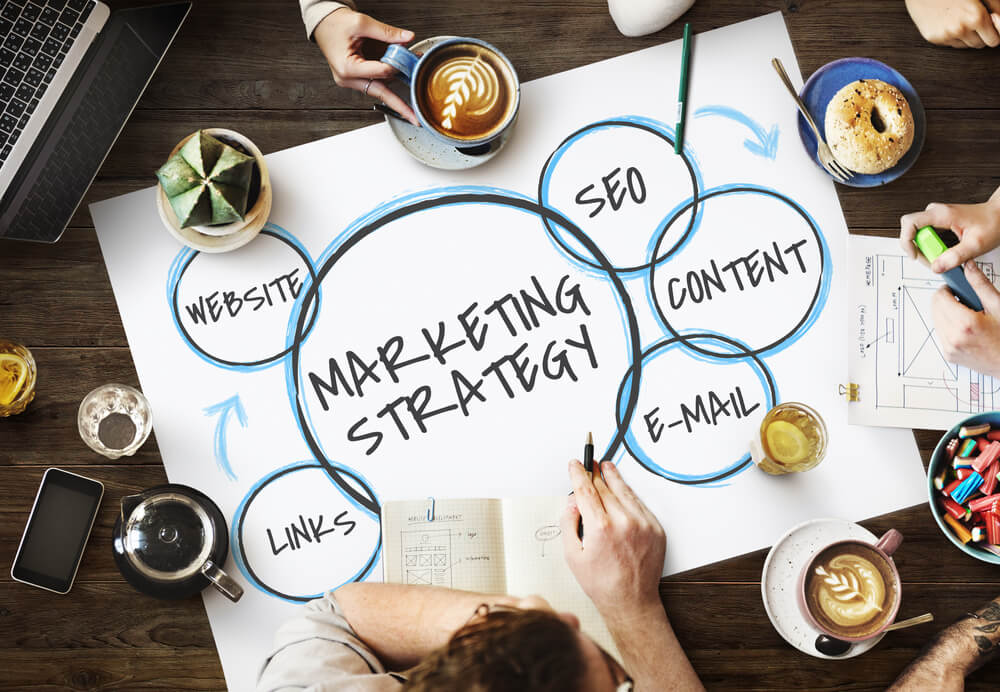Introduction
In today’s digital-first world, businesses of all sizes are harnessing the power of digital marketing to reach their target audience, boost brand awareness, and drive revenue growth. But simply having an online presence isn’t enough. To compete effectively, companies need a clear digital marketing strategy that aligns with their unique business goals, audience, and competitive landscape.
This article will guide you through the essentials of creating a digital marketing strategy tailored to the needs of a modern digital agency, especially if you’re focused on business-to-business (B2B) marketing. We’ll define what digital marketing strategy is, explain why it matters, and offer actionable insights to help you craft a strategy that delivers results.
What is Digital Marketing Strategy?
A digital marketing strategy is a plan of action that outlines how a business will achieve its marketing goals using online channels and platforms. This strategy encompasses everything from social media campaigns and content marketing to search engine optimization (SEO) and paid advertising. For a digital agency like One Step Future, developing a robust digital marketing strategy is the key to staying ahead in a competitive market and delivering measurable results to clients.
A digital marketing strategy provides a roadmap to meet specific goals—whether that’s increasing brand awareness, generating leads, or converting prospects into loyal customers. Without a well-defined strategy, marketing efforts are often fragmented, leading to wasted resources and missed opportunities.
The Importance of a Digital Marketing Strategy
Digital marketing is vast and complex, with numerous platforms and tactics available. A well-crafted digital marketing strategy ensures that all marketing activities are coordinated and targeted, improving efficiency and maximizing returns on investment. With a strategy in place, businesses can:
- Identify their ideal audience: Understanding your audience helps you tailor your content and offers for maximum engagement.
- Optimize resources: Knowing which digital channels to focus on lets you allocate time, budget, and effort effectively.
- Track performance: A strategic approach enables continuous monitoring, allowing businesses to adapt tactics based on what works.
- Stay competitive: With a clear plan, companies can respond to industry trends and outperform competitors.
For agencies like One Step Future, a strong digital marketing strategy not only delivers for clients but also showcases expertise and builds authority in the digital marketing field.
Key Components of a Digital Marketing Strategy
Crafting a digital marketing strategy requires understanding each component that contributes to a cohesive plan. Here’s an overview of the essential parts of an effective strategy:
1. Setting Clear Goals
Defining specific, measurable, achievable, relevant, and time-bound (SMART) goals is the first step in any marketing strategy for a digital agency. Typical goals might include increasing brand visibility, driving traffic, or generating leads. For example, One Step Future may set a goal to increase website traffic by 20% over the next six months or to achieve a specific number of qualified leads monthly.
2. Target Audience Analysis
Understanding your audience is fundamental to crafting a digital marketing strategy that resonates. Through audience research, identify demographic and psychographic details that will guide your messaging and channel choices. For B2B businesses, focusing on decision-makers within target companies and understanding their pain points is essential.
3. Competitor Analysis
Studying competitors allows digital agencies to identify gaps in the market and capitalize on opportunities. A digital marketing strategy includes competitor research, examining how competitors engage with audiences, which channels they prioritize, and their strengths and weaknesses. Use these insights to differentiate your approach.
4. Choosing the Right Channels
The channels you use will depend on your goals and target audience. Some effective options include:
- Social Media Marketing: Social platforms like LinkedIn are particularly valuable for B2B digital marketing strategies.
- Content Marketing: Publishing high-quality, relevant content builds brand authority and drives organic traffic.
- Email Marketing: Email remains one of the highest ROI-generating channels, especially for nurturing B2B leads.
- SEO: By optimizing content for search engines, you can attract organic traffic from people actively searching for solutions in your industry.
Selecting the right mix of channels and tactics is critical to creating a balanced strategy that meets diverse marketing goals.
5. Creating Valuable Content
Content is at the heart of a digital marketing strategy. Blogs, case studies, white papers, videos, and infographics engage audiences and provide valuable insights that position your agency as a trusted resource. When producing content, ensure that it’s optimized for relevant keywords like what is digital marketing strategy and marketing strategy for a digital agency to reach potential clients searching for information.
6. Leveraging Data and Analytics
Data-driven decisions are essential in digital marketing. Use analytics tools to track metrics like website traffic, engagement rates, and conversion rates to gauge the effectiveness of your digital marketing strategy. Regular analysis allows you to adapt your strategy based on performance, focusing more on what works and eliminating ineffective tactics.
B2B Digital Marketing Strategies: A Specialized Approach
For agencies targeting business clients, B2B digital marketing strategies require a different approach compared to B2C. The B2B audience often has a longer decision-making process, involves multiple stakeholders, and seeks in-depth information before committing. Here are some proven B2B strategies:
1. Account-Based Marketing (ABM)
ABM is a highly targeted approach that focuses on specific companies as “accounts,” tailoring marketing efforts to address the needs of each account individually. This approach is valuable for agencies looking to build relationships with high-value clients. ABM integrates well with other marketing tactics, allowing One Step Future to provide a customized experience to prospective clients.
2. Content Marketing for B2B
For B2B clients, content that educates and informs is more valuable than promotional content. Focus on creating detailed guides, case studies, and white papers that demonstrate expertise. Such content helps establish credibility and often influences the purchasing decision positively.
3. LinkedIn Marketing
LinkedIn is a powerful platform for B2B digital marketing, offering features that allow targeting based on industry, job role, and company size. Building a professional presence on LinkedIn is vital, and engaging with other industry leaders or prospective clients can boost visibility.
4. Lead Generation and Nurturing
Capturing leads through landing pages, email sign-ups, and downloadable resources is just the first step. Nurture those leads by sending personalized emails, offering valuable resources, and guiding them through the buyer’s journey until they’re ready to convert.
Developing a Winning Digital Marketing Strategy for Your Agency
Creating a successful marketing strategy for a digital agency means aligning your tactics with your agency’s strengths, resources, and goals. Here’s a step-by-step approach to building an effective strategy:
- Conduct a SWOT Analysis: Identify your agency’s strengths, weaknesses, opportunities, and threats.
- Define Your Unique Selling Proposition (USP): What sets your agency apart? Focus on unique services, results, or expertise.
- Create a Content Plan: Decide on the types of content you’ll produce and the distribution channels. Content should be keyword-optimized to rank for terms like digital marketing strategy and B2B digital marketing strategies.
- Develop a Timeline and Budget: Set a realistic timeline for achieving your goals and allocate budgetary resources to each part of your strategy.
- Regularly Review and Adjust: The digital landscape changes quickly. Regular reviews allow you to adjust your strategy and capitalize on emerging trends.
Common Challenges in Digital Marketing Strategy Development
While developing a digital marketing strategy offers numerous benefits, it’s not without its challenges. Here are some common obstacles and how to address them:
- Keeping Up with Algorithm Changes: Search engines and social platforms frequently update their algorithms, which can impact your strategy. Regular monitoring and flexibility are crucial to maintaining a high-performing strategy.
- Resource Allocation: Allocating budget and manpower effectively is often challenging. Prioritize activities that align most closely with your agency’s goals.
- Generating High-Quality Leads: For B2B agencies, attracting quality leads can be difficult. An emphasis on targeted, data-driven strategies can improve lead quality over time.
Final Thoughts on Crafting an Effective Digital Marketing Strategy
A successful digital marketing strategy doesn’t happen overnight. It requires research, creativity, data-driven decision-making, and adaptability. For agencies like One Step Future, understanding the nuances of digital marketing allows you to showcase your expertise and grow your client base by delivering results that matter.
Ready to take your digital marketing to the next level? Let One Step Future guide you in developing a strategy that sets your business apart and connects you with your ideal audience. Knock us whenever you need to grow!





